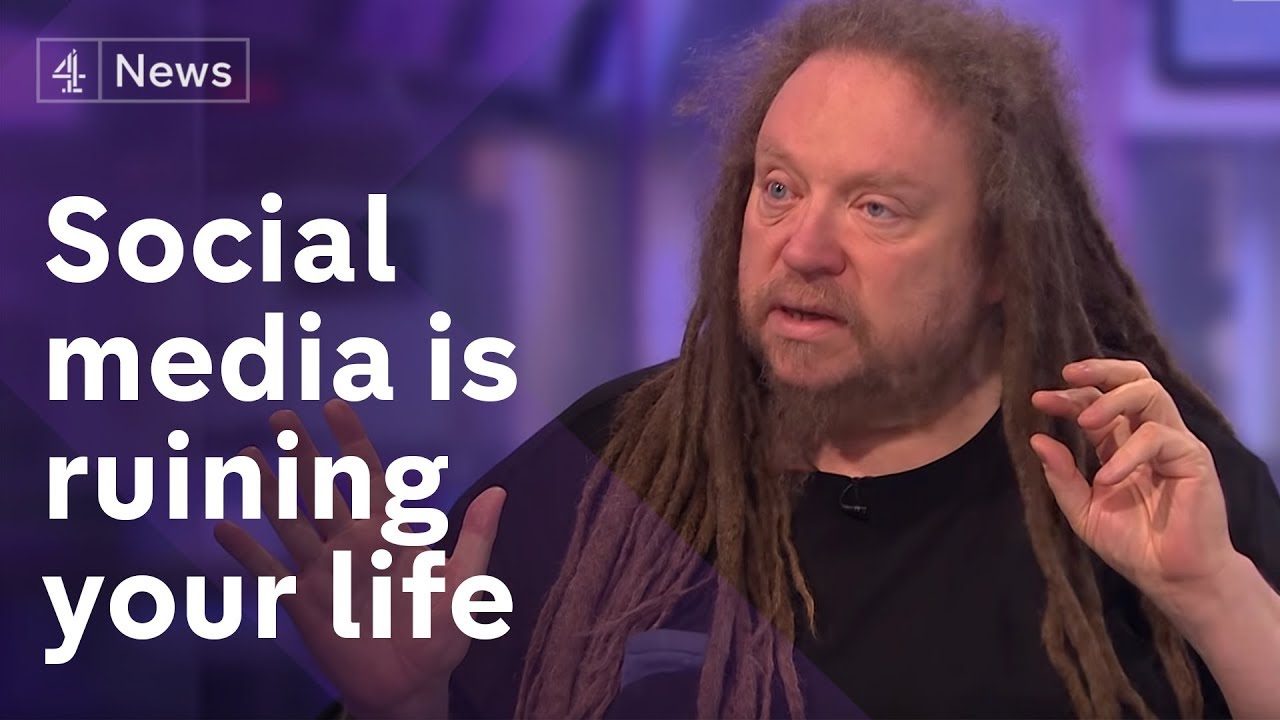The rise of social media has changed our day to day lives. But more and more reports show that social media and especially social media can impact our brain. Social media addiction might also to a decline in mental health. How does social media changes us? And are the effects by social media addiction reversal?
🔬 Subscribe for more awesome biomedical research: https://bit.ly/2SRMqhC
📸 IG: instagram.com/clemens.steinek
🔬Twitter: https://twitter.com/CSteinek
Social media has been developed to connect people. However, quite early, scientists found that social media (and social media addiction) can lead to changes in the brain such an enlarged amygdala. First reports surfaced showing that people compare their lives to lives they see on social media and report a decline of mental health upon heavy social media use. It seems like our brains cannot distinguish between social media and the real world. Social media also led to an attention span crisis meaning that we have a harder time to focus if we spend much time on social media. Moreover, social media is able to feed into the reward system of our brains. Everytime we perceive something good dopamine producing cells in the brain release dopamine which leads to a good feeling. Social media has used this mechanism to provide us with a constant stream of good feelings. Social media algorithms have been optimize to show more social media content in a shorter period of time leading to more dopamine. As a result, some argue that social media addiction should be recognized as a mental disorder.
Besides negatively impacting our brains on an individual level social media and social media addiction also impacts society. Last year, a sharp rise in tic symptoms have been reported among teenagers in the US. It seems like that tic-related content on tiktok together with anxiety caused by the COVID-19 pandemic led to this rise in tic-like symptoms. So what should we do about social media? And how can we ensure that our brains are not negatively impacted by the constant stream of dopamine? Well, sometimes the best thing is just to avoid social media for a while.
References:
https://www.ncbi.nlm.nih.gov/pmc/articles/PMC6502424/
https://fortune.com/2022/03/31/teen-girls-tourette-tics-tiktok/
https://onlinelibrary.wiley.com/doi/full/10.1111/jpc.15932
https://www.sciencedirect.com/science/article/pii/S0960982214014870
https://onlinelibrary.wiley.com/doi/abs/10.1111/adb.12570
https://www.pnas.org/doi/abs/10.1073/pnas.0903620106
https://www.nature.com/articles/nn.2724?luicode=10000011&lfid=231522type%3D1%26t%3D10%26q%3D%23%E6%9D%8F%E4%BB%81%E6%A0%B8%23&featurecode=20000345&u=http://www.nature.com%2Fneuro%2Fjournal%2Fvaop%2Fncurrent%2Ffull%2Fnn.2724.html
https://psycnet.apa.org/record/2018-22977-002
https://www.liebertpub.com/doi/full/10.1089/cyber.2021.0324
https://link.springer.com/article/10.1007/s40519-017-0364-2
https://www.tandfonline.com/doi/pdf/10.1080/02673843.2019.1590851
https://www.tandfonline.com/doi/abs/10.1080/00224545.2019.1578725
https://movementdisorders.onlinelibrary.wiley.com/doi/10.1002/mds.28778
https://www.liebertpub.com/doi/abs/10.1089/cyber.2018.0701
Images:
Most videos and images are derived from: pixabay.com, pexels.com and videvo.net
Some pictures were derived from Servier Medical Art by Servier. You can find over 3000 free medical images here: https://smart.servier.com/
Jack Dorsey by cellanr, CC BY-SA 2.0
Youtube Founders by Ianmacm, CC BY-SA 3.0
Steve Jobs by Flickr, CC BY-SA 2.0
Jeff Bezos by Seattle City Council, CC BY-SA 2.0
Emo by jezebel parker, CC BY-SA 2.0
Tokio hotel by Pascal Parvex, CC BY-SA 3.0
Nucleus Accumbens by Leevanjackson, CC BY-SA 4.0
Trumpet by PJ, CC BY-SA 2.0
00:00-00.59 Intro
00:59-3:22 How Social Media Changed our Brain
3:22- 6:00 Social Media Hijacks our Reward System
6:00-9:14 The Rise Of Social Media Addiction
9:14-11:01 What to do about Social Media Addiction
Music:
Title: Art of Silence by Uniq https://soundcloud.com/uniqofficial
Title: Punch Deck by promoted by BreakingCopyright: https://bit.ly/bkc-ethereal2 (CC BY 3.0)
Title: Black heat by Ross Budgen (CC BY 4.0)
Title: Filaments by Scott Buckley d (CC BY 3.0)
Title: Rudolph by Lukrembro https://soundcloud.com/lukrembo
Light Sting by Kevin MacLeod (CC By 4.0)
Source: http://incompetech.com/music/royalty-…
Title: Buddha by Kontekst
Genre and Mood: Hip Hop & Rap + Bright
Artist: http://incompetech.com/
About Clemens Steinek:
About Clemens Steinek:
CLEMENS STEINEK is a PhD student/youtuber (LifeLabLearner) who is currently conducting stem cell research in Germany.



